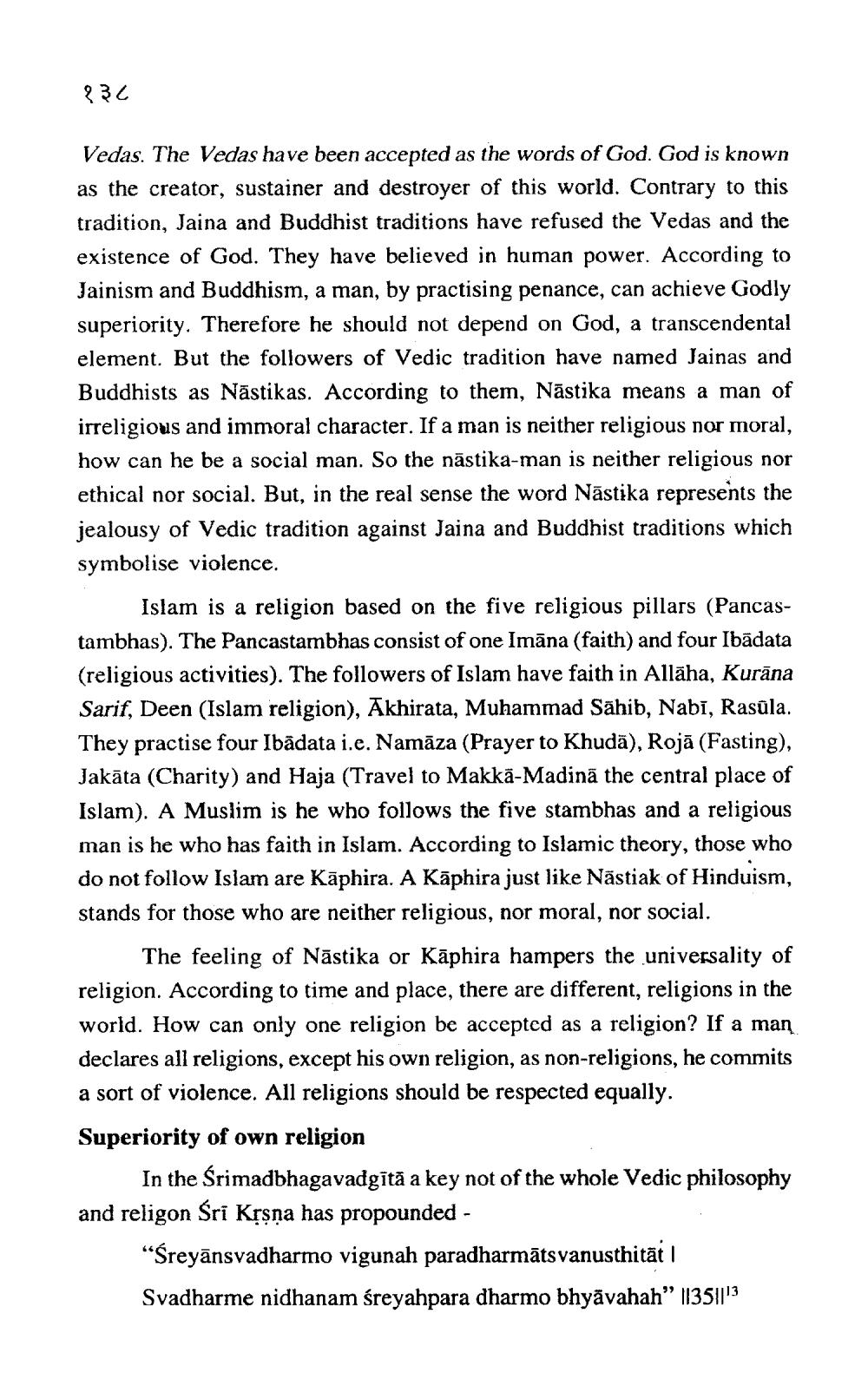________________
१३८
Vedas. The Vedas have been accepted as the words of God. God is known as the creator, sustainer and destroyer of this world. Contrary to this tradition, Jaina and Buddhist traditions have refused the Vedas and the existence of God. They have believed in human power. According to Jainism and Buddhism, a man, by practising penance, can achieve Godly superiority. Therefore he should not depend on God, a transcendental element. But the followers of Vedic tradition have named Jainas and Buddhists as Nāstikas. According to them, Nāstika means a man of irreligious and immoral character. If a man is neither religious nor moral, how can he be a social man. So the nāstika-man is neither religious nor ethical nor social. But, in the real sense the word Nāstika represents the jealousy of Vedic tradition against Jaina and Buddhist traditions which symbolise violence.
Islam is a religion based on the five religious pillars (Pancastambhas). The Pancastambhas consist of one Imāna (faith) and four Ibādata (religious activities). The followers of Islam have faith in Allāha, Kurāna Sarif, Deen (Islam religion), Akhirata, Muhammad Sahib, Nabi, Rasûla. They practise four Ibādata i.e. Namāza (Prayer to Khudā), Rojā (Fasting), Jakāta (Charity) and Haja (Travel to Makkā-Madinā the central place of Islam). A Muslim is he who follows the five stambhas and a religious man is he who has faith in Islam. According to Islamic theory, those who do not follow Islam are Kāphira. A Kāphira just like Nāstiak of Hinduism, stands for those who are neither religious, nor moral, nor social.
The feeling of Nāstika or Kāphira hampers the universality of religion. According to time and place, there are different, religions in the world. How can only one religion be accepted as a religion? If a man declares all religions, except his own religion, as non-religions, he commits a sort of violence. All religions should be respected equally. Superiority of own religion
In the Srimadbhagavadgită a key not of the whole Vedic philosophy and religon Sri Krsna has propounded -
"Śreyānsvadharmo vigunah paradharmātsvanusthitãt | Svadharme nidhanam śreyahpara dharmo bhyāvahah” |1351|3




